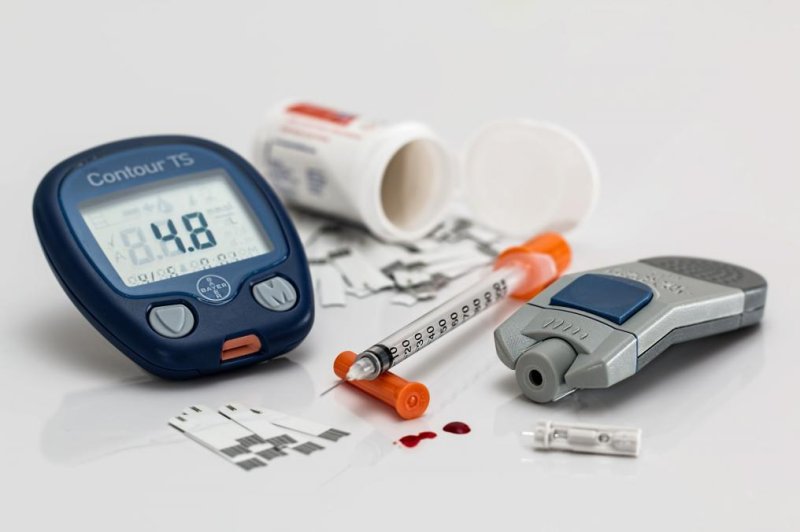Some patients' type 2 diabetes went into remission because of extreme weight loss, according to a study. Upon further research, it was linked to early and sustained improvement in the functioning of pancreatic beta cells. Photo by
stevepb/pixabay
Aug. 2 (UPI) -- Researchers have figured out why some patients' type 2 diabetes goes into remission from aggressive weight loss -- improved functioning of pancreatic beta cells.
Researchers at Newcastle University in England built on their Diabetes Remission Clinical Trial, in which 46 percent of individuals with the diabetes no longer were diabetic on year later if they underwent intensive weight loss. Their new findings, which were published Thursday in the journal Cell Metabolism, challenge the previous belief that beta-cell function is irreversibly lost in type 2 diabetes patients.
"This observation carries potentially important implications for the initial clinical approach to management," senior author Dr. Roy Taylor of Newcastle University, who also oversaw the trial, said in a press release. "At present, the early management of type 2 diabetes tends to involve a period of adjusting to the diagnosis plus pharmacotherapy with lifestyle changes, which in practice are modest. Our data suggest that substantial weight loss at the time of diagnosis is appropriate to rescue the beta cells."
Diabetes is a global problem affecting approximately 422 million people worldwide, of which 90 percent of cases are type 2 diabetes, according to the World Health Organization. Diabetes prevalence has risen from 4.7 percent in 1980 to 8.5 percent in 2014.
In type 2 diabetes, the body does not produce enough or respond properly to insulin. The hormone, which is produced by beta cells in the pancreas, help glucose in the blood enter cells in muscle, fat and liver for energy.
In the remission study, participants diagnosed with type 2 diabetes within six years of the start of the study were randomly assigned to a control group of normal weight management or an intensive weight-loss program. Nearly half of the individuals in the intervention group recovered from diabetes and maintained control over blood glucose concentrations.
The researchers then studied relevant metabolic factors, including liver fat content, pancreatic fat content, blood concentrations of fats called triglyceride and beta-cell function, in a subset of trial participants, including 64 individuals in the intervention group and 26 in the control one.
There were reductions in liver fat content, pancreatic fat content and blood concentrations of triglycerides regardless of how much the participants lost weight.
But they found a more rapid loss was linked to the change in pancreatic beta cells and non-diabetic glucose control.
"The knowledge of reversibility of type 2 diabetes, ultimately due to re-differentiation of pancreatic beta cells, will lead to further targeted work to improve understanding of this process," Taylor said. "This provides a major focus for cell biologists to make specific advances."
The researchers recommend a longer observance period than 12 months and a more demographic samples because 98 percent in the study were white.















